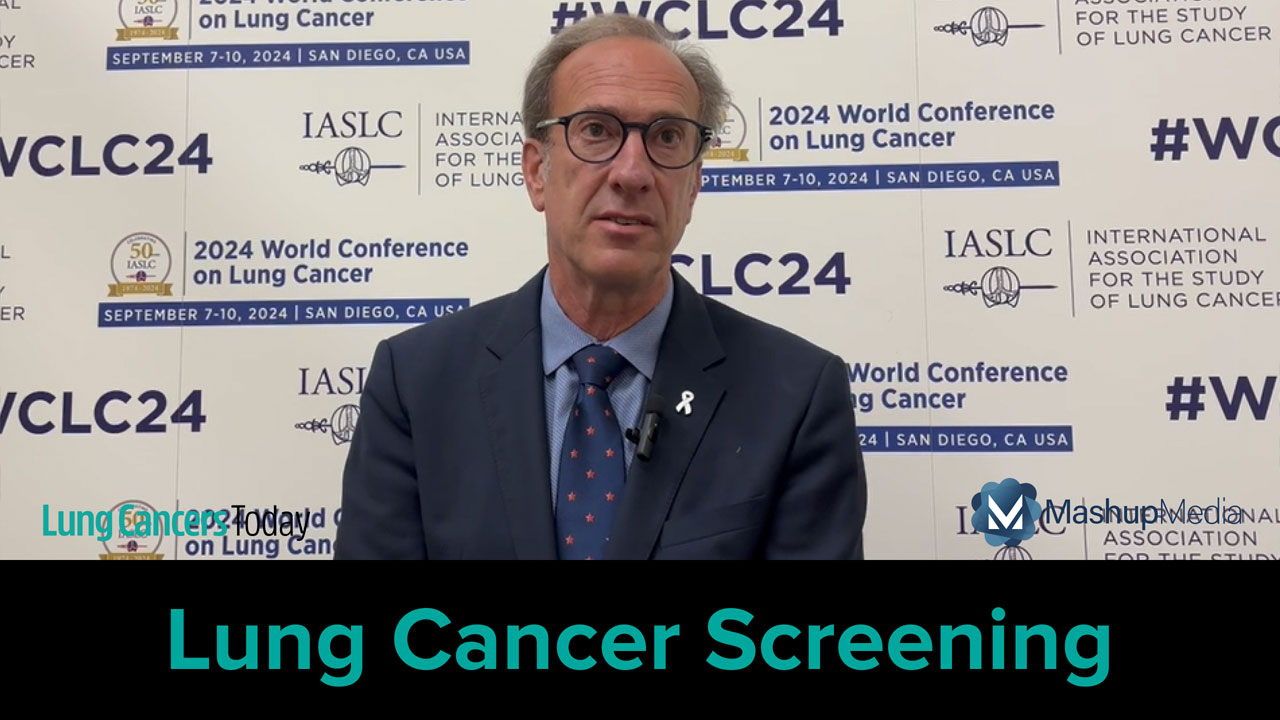Phase 3 LUNAR Trial: Dr. Rolfo Discusses New Analysis at IASLC 2024 World Conference on Lung Cancer
By Christian Rolfo, MD, PhD, Cecilia Brown - Last Updated: September 26, 2024Christian Rolfo, MD, PhD, of The Ohio State University Comprehensive Cancer Center Arthur G. James Cancer Hospital and Richard J. Solove Research Institute, joined Lung Cancers Today at the IASLC 2024 World Conference on Lung Cancer to discuss a post-hoc analysis from the phase 3 LUNAR study.
The phase 3 LUNAR trial showed that adding tumor-treating fields (TTFields) to immune checkpoint inhibitor or docetaxel therapy improved overall survival compared with an immune checkpoint inhibitor or docetaxel alone in patients with metastatic non-small cell lung cancer (NSCLC) following progression on or after platinum-based therapy.
However, the effects of TTFields are dependent on several factors, leading Dr. Rolfo and colleagues to conduct the post-hoc analysis to evaluate the impact of body mass index (BMI) on the use of TTFields in patients with metastatic NSCLC.
“What we did in this specific update of the data was to focus on the BMI because the body mass index could be one of the things that we need to be careful of when we are applying TTFields, and we want to know if there is any difference that could affect these results of overall survival,” Dr. Rolfo explained.
Dr. Rolfo explained the results that they observed when they analyzed patients with varying BMIs, as well as a simulation study that evaluated the TTFields intensity and distribution using small and large array sizes in computerized phantom models with BMIs categorized as healthy, overweight, and obese.
“Regardless of the BMI, the patients are continuing to respond when they are using the TTFields in addition to immunotherapy or chemotherapy,” he said.
The simulation study, which accounted for the size of the radio device used, showed that “regardless of the size” of the device, “the patients are also responding,” Dr. Rolfo said.
Overall, this data is adding “confidence to the to the data that we have already with TTFields,” he said.







 © 2025 Mashup Media, LLC, a Formedics Property. All Rights Reserved.
© 2025 Mashup Media, LLC, a Formedics Property. All Rights Reserved.